I loved my mom and always felt we were close, but I never told her the sorts of private things my daughter tells me. There was plenty Mom did not know and that I didn’t want her to know. I sensed she didn’t really want to know, either, even though she adored me.
Nothing is more precious to me than the discussions I have with my daughters who are now 29 and 24. I consider their frequent use of me as a sounding board my crowning achievement as a parent (yep, I’m taking full credit for this one). My teenage son shares feelings openly with me and I am so grateful. After keeping so many secrets from my own mother, this element of our relationship has been a tremendous surprise and immensely flattering. Here’s what I believe has made it possible:
Respectful two-way communication from Day One
It can feel downright weird to talk in our authentic voice about real things to a baby. But if we take this leap of faith, the results are both fascinating and rewarding. By verbally engaging with our baby about pertinent issues like, “Do you want me to pick you up now?” while also taking the time to observe and listen to her responses — by relating to our infant as a whole person from the beginning — we soon discover this wonderful truth: Babies can (and will) begin to return the favor by sharing their unique points of view with us. This early dialogue can be the cornerstone of a future healthy relationship.
Empathy, understanding, limits without shaming
Empathy is essential for children to feel our unconditional love and acceptance. Without those elements in place, there isn’t the trust necessary for honesty and sharing. Children need to feel safe in the knowledge that we see none of their feelings and desires as wrong, shameful, or beyond our understanding.
This doesn’t mean we give up our authority, because kids are lost and insecure without our leadership. It means continuing to acknowledge our children’s feelings and perspectives while clarifying expectations and preventing unacceptable behavior.
In other words, we let our child know that it’s okay to want 50 ice cream cones or feel like hitting a sibling, but that we won’t allow those things to happen. If we don’t get there in time and the hit happens, we stay calm (remembering we are on both of our children’s teams) while definitively stating our expectation. Even then, we remain open to hearing each child’s feelings and point of view. If there was a mantra for fostering communication with children, it might be Stay open, stay open, stay wide open.
Punishments might seem to be the quicker, easier path to teaching impulse control and “good” behavior (though not in my book), but they create an atmosphere of shame that makes kids more guarded. Young children can’t compartmentalize bad behavior, so punishment tends to convince them that they are bad (rather than the behavior) and must therefore hide away parts of themselves, which will not foster open communication, now or in the future.
Not taking sides or criticizing
Never take sides, including your child’s. I’m grateful that my oldest daughter clued me in on this as a teenager and was adamant. When we judge a sibling or friend because our child is hurt or disappointed, we are perceived as critical, judgmental, and a less trusted confidant. Hardly seems fair, but it’s true.
Listening and acknowledging, not fixing. Only give advice when asked.
Parents are hardwired to make it all better, so listening without fixing is much easier said than done, but crucial. Let it be okay to just be there while your child cries rather than trying to comfort her with “it will be all right.” Don’t try to fill the silence. Children don’t open up unless we offer them an attentive ear and a wide-open, accepting space.
Comment only to acknowledge feelings: “Getting nervous and flustered during your oral report was upsetting after all the work you did on it.” And then refrain from immediately adding, “But that probably won’t lower your grade in the class,” or “It will be easier next time.”
Honest, humble admissions
I’ve reminded my children over the years that there is nothing they could possibly do — any mistake they could make — that I haven’t already made. In fact, I’m fairly sure I’ve done far more careless, thoughtless or reckless things than they could ever do. This has been easy for me to acknowledge to them because I believe it. From time to time, if it seemed age-appropriate, I’ve added specifics. It was a risk, I’m glad I took because it reiterated to my kids that I love unconditionally and will not judge.
Patience through the lean times. Let the child initiate.
The most successful discussions I’ve had are child-initiated. Pressure kills intimacy. Adolescents, especially, tend to be secretive and don’t want probing parents. If we’re lucky, they feel safe enough to share their private thoughts and lives, but it will usually be on their terms and timetable. All we can really ever do is let children know through our words and actions that we are wide open, non-judgmental, ready when they are. And then be prepared to drop everything and be fully present when we are offered the privilege of being needed.
I share more about this respectful approach in my book: No Bad Kids: Toddler Discipline Without Shame
(Adapted from an article originally published on eHow)

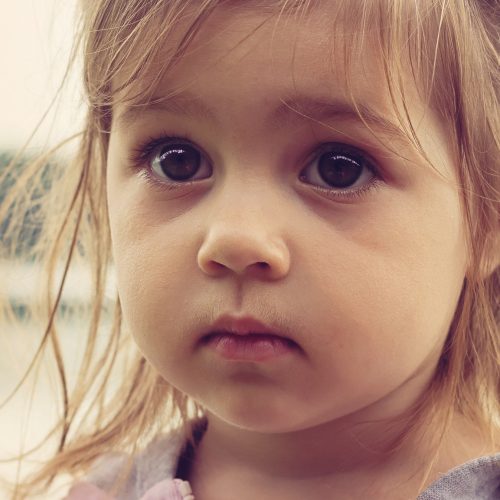

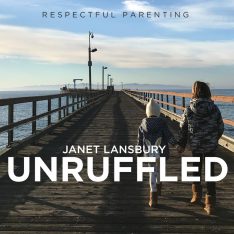


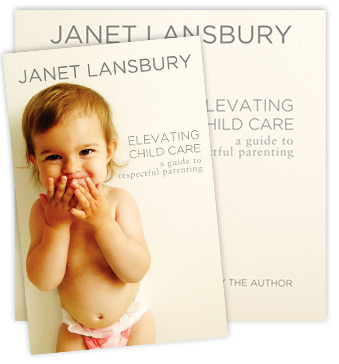

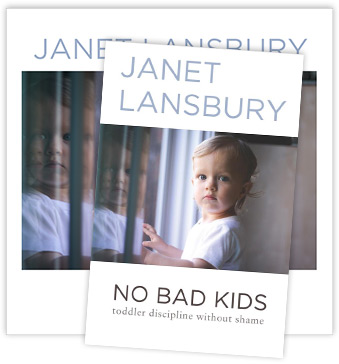
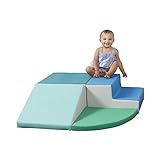
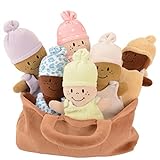
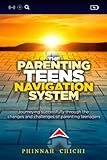
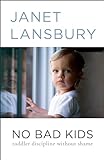
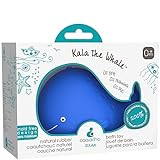
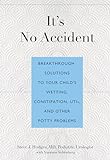
I’ve always thought I was my children’s best friend. Until they became teenagers. They started to get secretive and spend a lot more time going out with their friends. It made me kinda jealous. Contemplating on it, I realized that they are actually more open to me than I was to my mom when I was a teenager. So that brought me peace. I respect their privacy so I try not to go back being a “helicopter mom”. Although I’m no longer their best friend, I’m still their mom. A mom who will drop everything and lend an ear whenever they need someone to talk to, And I always give unsolicited hugs and kisses 🙂
“Punishments might seem to be the quicker, easier path to teaching impulse control and “good” behavior (though not in my book), but they create an atmosphere of shame that makes kids more guarded…. I’ve reminded my children over the years that there is nothing they could possibly do — any mistake they could make — that I haven’t already made. In fact, I’m fairly sure I’ve done far more careless, thoughtless or reckless things than they could ever do. This has been easy for me to acknowledge to them, because I believe it. From time to time, if it seemed age appropriate, I’ve added specifics. It was a risk, I’m glad I took, because it reiterated to my kids that I love unconditionally and will not judge.”
What you wrote made a powerful impact to me. Thank you so much for these wonderful reminders you have shared!
It’s my pleasure! Thank you for reading.
Today my 20-month-old son went with his grandparents to the aquarium while I had a friend over for brunch. When my son came home he was happy to see me and excited to talk about what he saw, and to read a book about visiting the aquarium. His grandparents said that he had a great time and had been engaged and well behaved. After some snuggles and books, he began to play. He started to get more and more agitated. Suddenly he burst into tears, and I held him as he fell apart over his very exciting, yet somewhat frightening and overwhelming day. It was a priveledge to be so trusted with these big feelings, and such a relief for us both that I could hear them without needing to do anything. Thank you for your words! Reading your work has helped me to find my voice and my confidence as a parent.
How wonderful, Adonia! It truly is a gift to be that person for our children. You have built a relationship of trust and intimacy. Well done!
This may sound grandiose but you’re the reason I had another child. Your articles and podcast gave my anxious and perfectionist-prone brain a much needed break. I don’t have to “be” anything for my children other than present and it’s not my job to create a perfect, struggle-free life for them. Thank you for showing me that my girls were born strong and it’s nothing I have to force or fix.
This is so wonderful. Never had I thought of such perspective ❤️
I find myself continually remembering this post, though I read it a long time ago. I, too, want my daughter to come to me as a teen and I now understand why I was distant from my mother as one. Thank you for that insight.
I have been taking care of me more: respecting my own boundaries, which means I may be in the house, but doing my own thing more. My daughter will come in to see me, quietly and with blankie, to curl up next to me or to get in my lap. It is always a perfect time for me, too, because I had had enough alone time to feel full again.
She is coming to me to fill up and knows she can do this. I am safe. I am love. I am comfort. Your site softens all my edges for her to curl into.
Last night we were reading Lyle Lyle Crocodile, and Hector P. Valenti wrote that he does not like crocodile tears and returned Lyle. I casually mentioned that if she never stopped crying I would still love her and keep her forever. I found this opening to let her know I love All of her All of the time.
I have calmed our house down so these quiet moments can happen: the little stitches creating the large beautiful tapestry of her life with me.
I sincerely cannot thank you enough for your passion, compassion and commitment to children and those who tend to them.
Do you have any teen specific blogs or writings? I love your perspective on parenting and children and would definitely appreciate some of your guidance with my relationship with my teenage daughter (my eldest of three). I feel so disconnected from her and feel like the parent I wish I was for her and the parent I am being are poles apart.
Thank you, Nikki! Teens are not my specialty, although I learned a lot from raising my own. I don’t have training or professional experience in that age group. I have written a few posts that apply to teens, you can find them in this section of my website:https://www.janetlansbury.com/category/older-kids-teens/ Hmmm, but now I see that this is a wide span from grade school age through teen so you might need to go through…
Do you have a sense of the reason for your disconnection?
What should we tell our kids so that they know there is a consequence (losing their toy) if they repeat hitting someone next time? Also if they lost a game/race what should we tell them that would help them recover(aside from validating their feeling) ?
My husband and I are struggling to agree on how to handle what he sees as a scenario of this nature. He says I need to listen and not fix this:
We moved from SF Bay Area California to Austin, Tx a month ago and my 4 year old had deep friendships and attended an incredible Reggio Emilia private preschool. Our move was a fast decision and Husband toured preschools (daycares) I had chosen as options and signed him up before we arrived.
What I missed was how sterile the environment was at this new school. I already knew we were losing the child led learning curriculum and was saddened but the schools here I found that were even close to this had year long waits. He now attends this academic focused day care that does 30 minute increment class rotations (art music, Spanish, STeAM, outside -but zero nature- ZERO as it has fake turf under playground surrounded by concrete for bike track and no trees anywhere nearby. )
Every single day morning amd at night before bed my son tells me he hates his new school
And he needs a new school. He says the kids are too rough here and they are loud and push him around. I’ve spoken to the teachers and I’ve given flyers out to parents and hosted donut play dates with a few of the kids on the weekends to try and make a friend for him. He doesn’t tell my
Husband these feelings. So H thinks he is just getting the best of my emotions.
I feel like we need to try harder to find a new school. But H thinks I’m just being duped Amd I need to stop trying to fix things for him and just listen to his feelings. How am
I supposed to respond when my son is crying softly pleading with me to not make him
Go back because the teachers are not nice and the kids are too rough?
Hi Jessica – If I were you I would want a lot more information. What are the teachers observing about him and his relationships with other children? Would they allow you to come and quietly observe? Can they help you to understand why your child is reporting the pushing, etc?
As a CSA survivor, I am working on a relationship in, which my kids (5 yo and 9 yo) know that they can trust me with anything. I long for that child, teenager and adult connection that my own parents never had/have with us, mostly due to the way they were raised and were raising their children (authoritarian type of education in France).
Sometimes there is that small event where I know I’m on the right path, but so often I feel that I’m failing or not doing enough. I guess only time will show. But I will keep working on it. I want to be there for my kids whenever they want or need me to.